If you’ve ever had the uncanny feeling that something about life just doesn’t add up, you’re not alone. From the deja vu moments that make you pause to the odd coincidences that seem too perfect, there’s an almost nagging sense that the universe might not be what it seems. But what if these hunches weren’t just in your head? What if, as some scientists and philosophers suggest, we’re all living in a giant, high-tech simulation?
It sounds like the plot of a Hollywood blockbuster (and, yes, “The Matrix” fans, you were ahead of the curve), but the idea isn’t just sci-fi. It’s also a topic of serious academic discussion, scientific curiosity, and, let’s be honest, a little bit of conspiracy theory flair. Let’s explore the simulation hypothesis — a theory that’s as mind-blowing as it is entertaining.
And if you’re ready to take this mind-bending journey even further, check out our YouTube video:
➡️ “Is Reality REAL, or a SIMULATED Holography?” where we explore the science, unravel fascinating theories, and challenge everything you thought you knew about existence!
The Simulation Hypothesis 101
At its core, the simulation hypothesis posits that our reality isn’t actually “real” in the traditional sense. Instead, it’s a sophisticated digital simulation created by an advanced civilization. Think of it like the most immersive video game ever, except we’re the characters, and we’re not in on the joke.
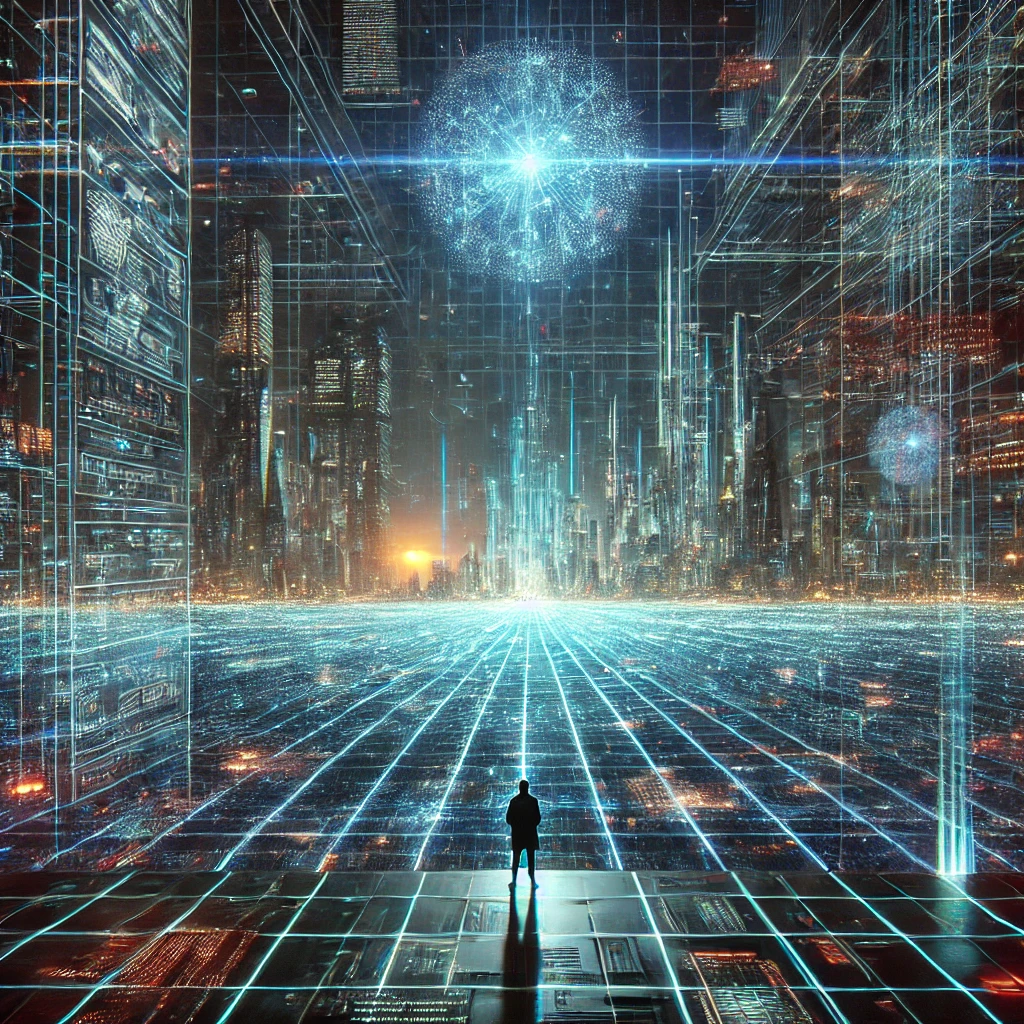
This idea gained serious traction thanks to philosopher Nick Bostrom’s 2003 paper, Are You Living in a Computer Simulation? Bostrom argued that at least one of the following propositions is true:
- Almost all civilizations at our level of technological development go extinct before becoming advanced enough to create simulations.
- Advanced civilizations choose not to run simulations for moral or ethical reasons.
- We are almost certainly living in a simulation.
If the first two possibilities are false, the third seems unavoidable. Why? Because if advanced civilizations can create simulations and do so regularly, the number of simulated realities would vastly outnumber base-level “real” realities. Statistically speaking, the odds that we’re in the original reality shrink to almost zero. It’s like flipping a trillion-sided coin and expecting to land on the one face that says “real world.”
Science’s Take on the Matter
While the simulation hypothesis might sound like late-night dorm room fodder, serious scientists have considered its implications. Here are some fascinating angles:
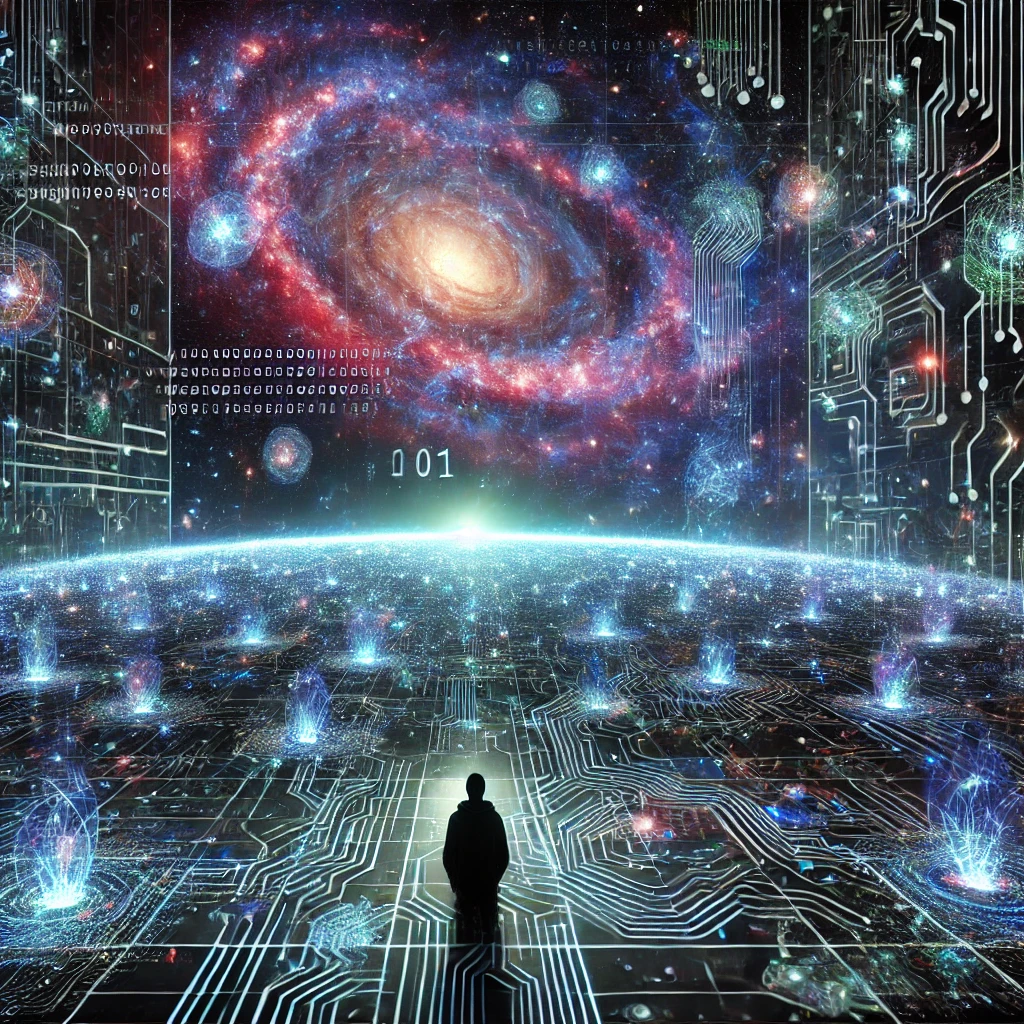
1. Cosmic Pixels
Theoretical physicist Sylvester James Gates discovered something downright eerie while studying string theory. He found what appeared to be error-correcting codes — the kind used in computer software — embedded in the equations that describe fundamental particles. Gates himself remarked on how bizarre it was, wondering if this was evidence of a programmed reality.
Think about it: if the universe operates like a digital construct, it might explain why physics is governed by immutable laws, like a set of programming rules. The speed of light, for example, could be a “processing limit” rather than an inherent truth of the cosmos.
2. The Simulation Argument and Quantum Weirdness
Quantum mechanics, the branch of physics that governs the tiny building blocks of the universe, is notoriously strange. Particles behave like waves, objects exist in multiple states until observed, and entanglement allows particles to influence each other instantaneously, regardless of distance.
Some theorists suggest that this quantum weirdness could be evidence of a simulation. Perhaps particles exist in a “superposition” (multiple states) because they’re only “fully rendered” when observed — much like how video games only load parts of a map when the player approaches them.
3. Elon Musk and the Tech Titans
Even the tech elite have weighed in. Elon Musk famously stated in 2016, “There’s a one in billion chance we’re in base reality.” His reasoning? Consider the rapid advancements in video game technology. In just a few decades, we’ve gone from pixelated Pong to hyper-realistic virtual reality. If this trend continues, it’s plausible that future civilizations could create simulations so realistic that the inhabitants wouldn’t know they were fake. And if they could, why wouldn’t they?
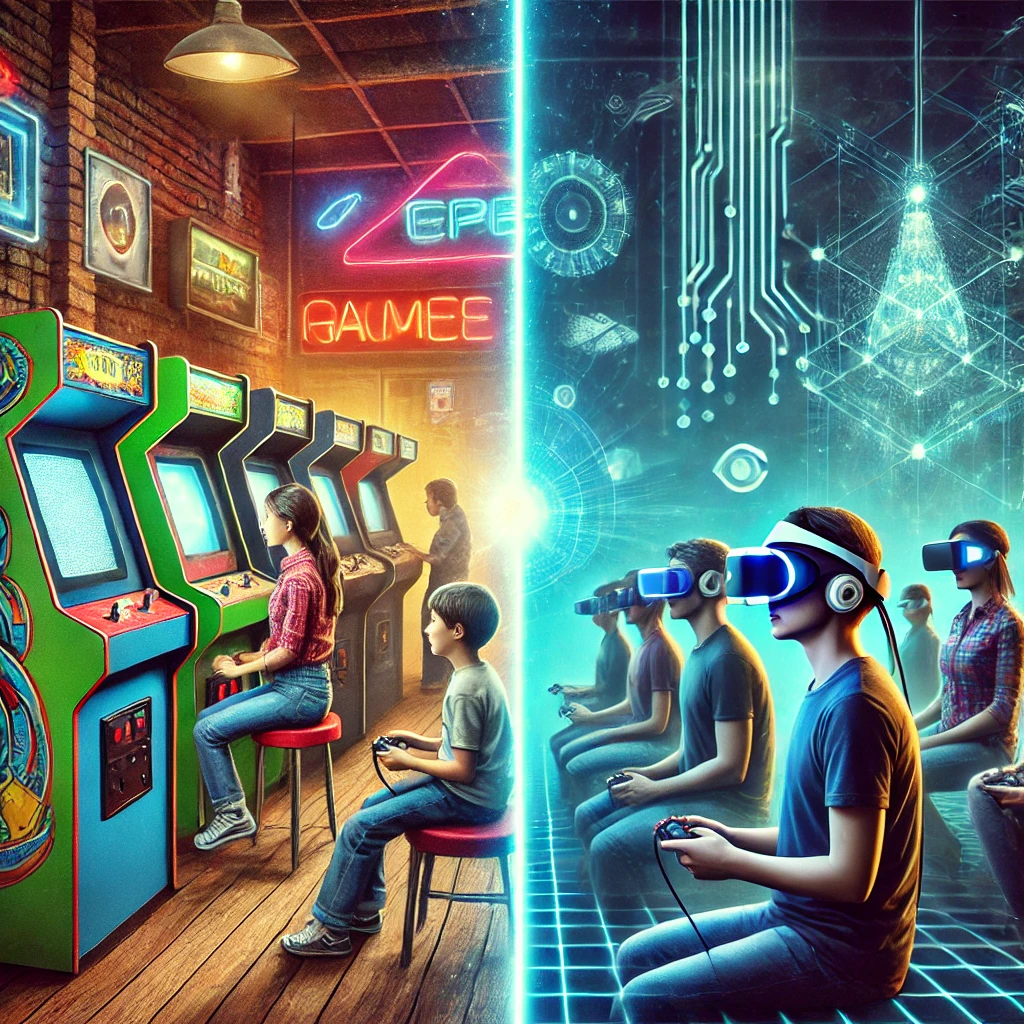
Evidence That Makes You Go “Hmm…”
So, is there any tangible evidence we might be living in a simulation? Let’s explore some phenomena that give simulation theorists plenty of material to work with:
1. Deja Vu and Glitches in the Matrix
Who hasn’t experienced deja vu — that uncanny sense that you’ve lived a moment before? While science often chalks it up to memory quirks, simulation proponents have another theory: it’s a glitch in the program. Maybe the system double-rendered a scene or recycled an event. Kind of like a bug in a video game.
2. The Mandela Effect
The Mandela Effect describes collective false memories, like misremembering the spelling of the “Berenstain Bears” or believing Nelson Mandela died in the 1980s (spoiler: he didn’t). Some conspiracy theorists suggest this could be evidence of “patch updates” to the simulation, where old details are overwritten but traces linger in our minds.
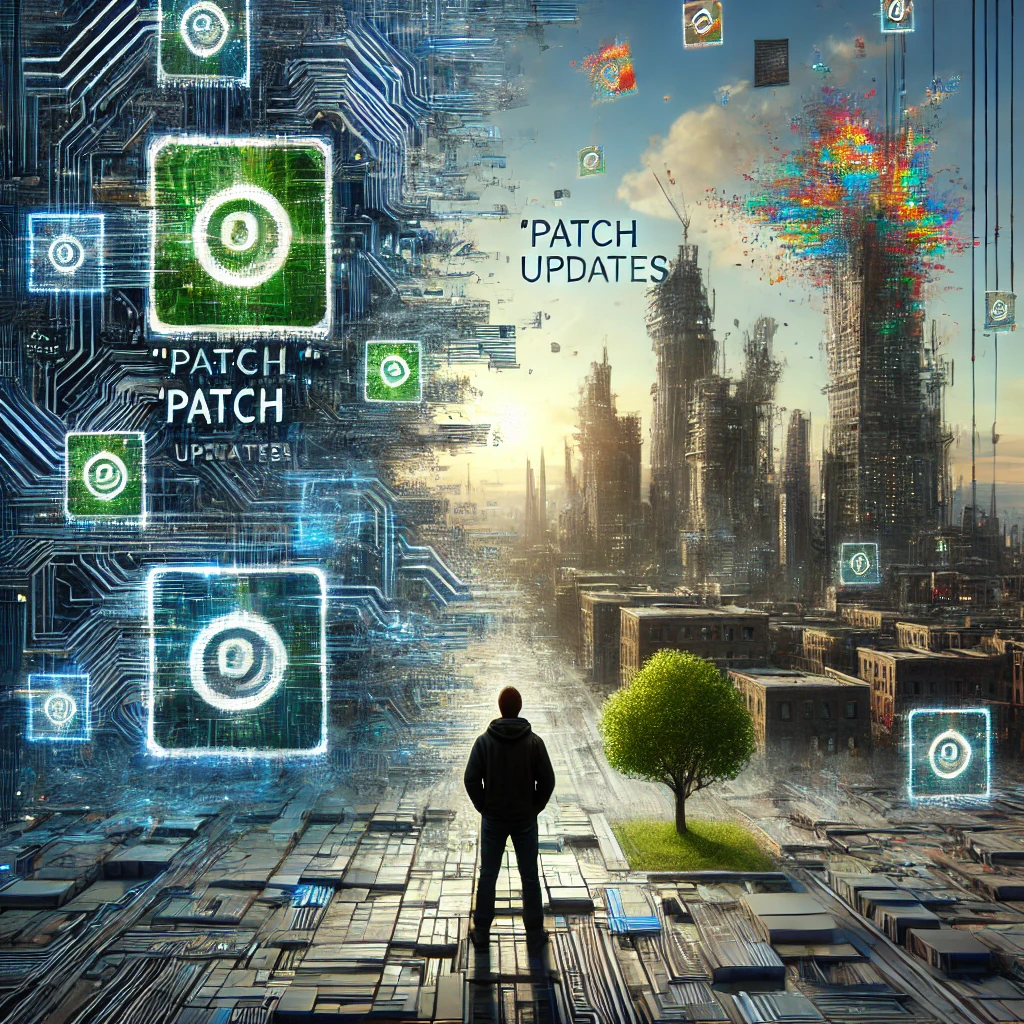
3. Mathematical Order in the Universe
The universe runs on mathematics, from the Fibonacci sequence found in nature to the predictability of planetary orbits. This underlying mathematical order feels almost too perfect, as if the cosmos were coded rather than chaotic. If you’ve ever played with fractals or observed how patterns repeat in nature, it’s easy to imagine them as the output of some cosmic algorithm.
4. Uncanny Coincidences
Ever think about someone and have them call moments later? Or notice how certain numbers seem to follow you around? Skeptics might call it confirmation bias, but simulation theorists might argue it’s the algorithm at work, feeding you tailored events for maximum immersion.
Conspiracy Corner: The Wild Theories
No discussion of the simulation hypothesis would be complete without a trip to the wilder side of speculation. These ideas might not hold up to rigorous scientific scrutiny, but they’re undeniably fun to ponder.
1. The Overseers
Who’s running the simulation? Some theorists imagine advanced aliens with godlike technology. Others suggest it’s future humans simulating their ancestors for research or entertainment. If that’s true, are we just NPCs (non-playable characters), or do our choices genuinely matter?
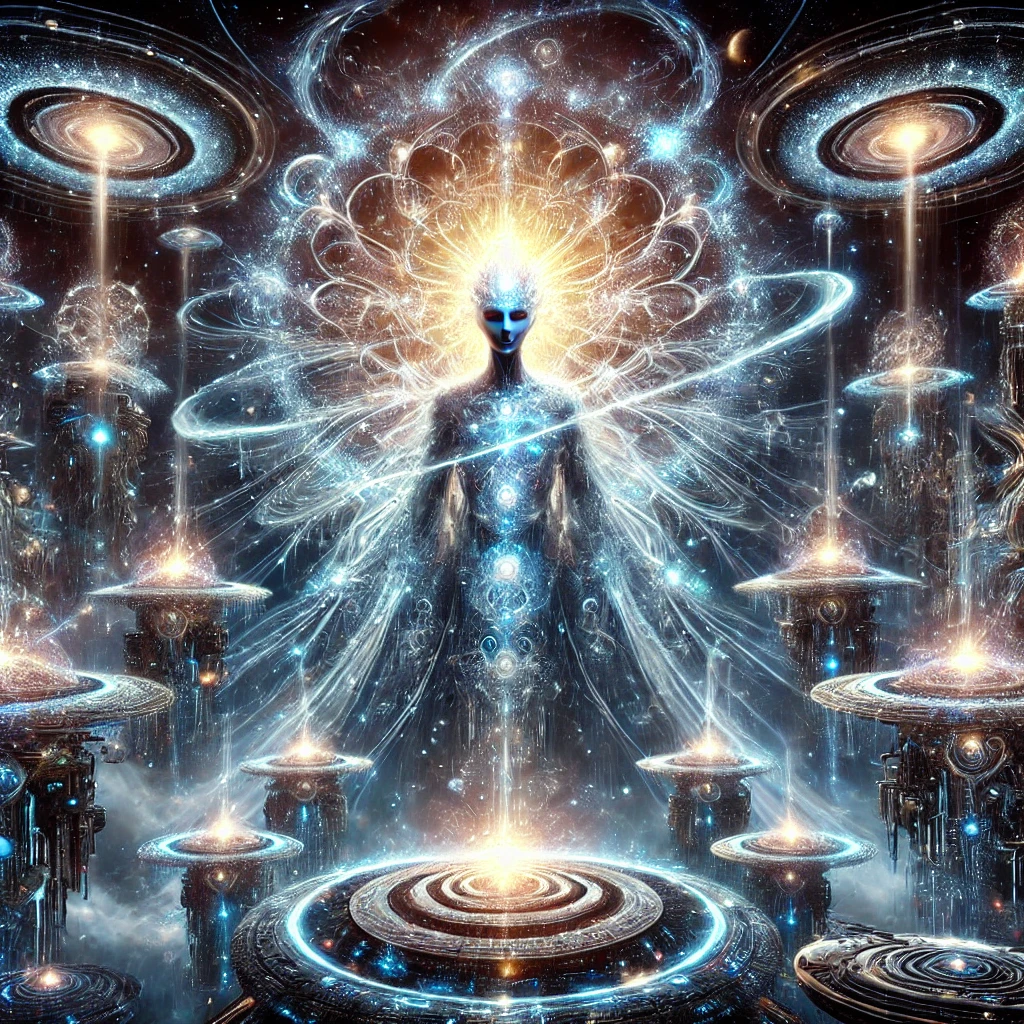
2. Time Is an Illusion
Have you ever noticed how time seems to speed up as you age or slow down during moments of crisis? Some argue that time itself might be an artificial construct, part of the simulation’s programming to help us make sense of events in sequence.
3. UFOs and the Simulation’s “Developers”
Could UFO sightings and unexplained phenomena be glitches or interventions by the simulation’s creators? Perhaps they’re “debugging” the system or testing out new features.
What Would It Mean If We Are in a Simulation?
Let’s suppose, for a moment, that we’re all living in a simulation. What then? Would it change how we view the world, our relationships, or our sense of purpose?
1. Existential Reframing
For some, the idea might be freeing. If life is just a simulation, maybe we’re not bound by the same existential worries. Who cares if the universe ends if it’s just a program?
2. Ethical Implications
On the flip side, it raises ethical questions about the beings running the simulation. Are we being watched for entertainment, like a cosmic “Truman Show”? Do we have rights as simulated entities? And what happens if they decide to “pull the plug”?
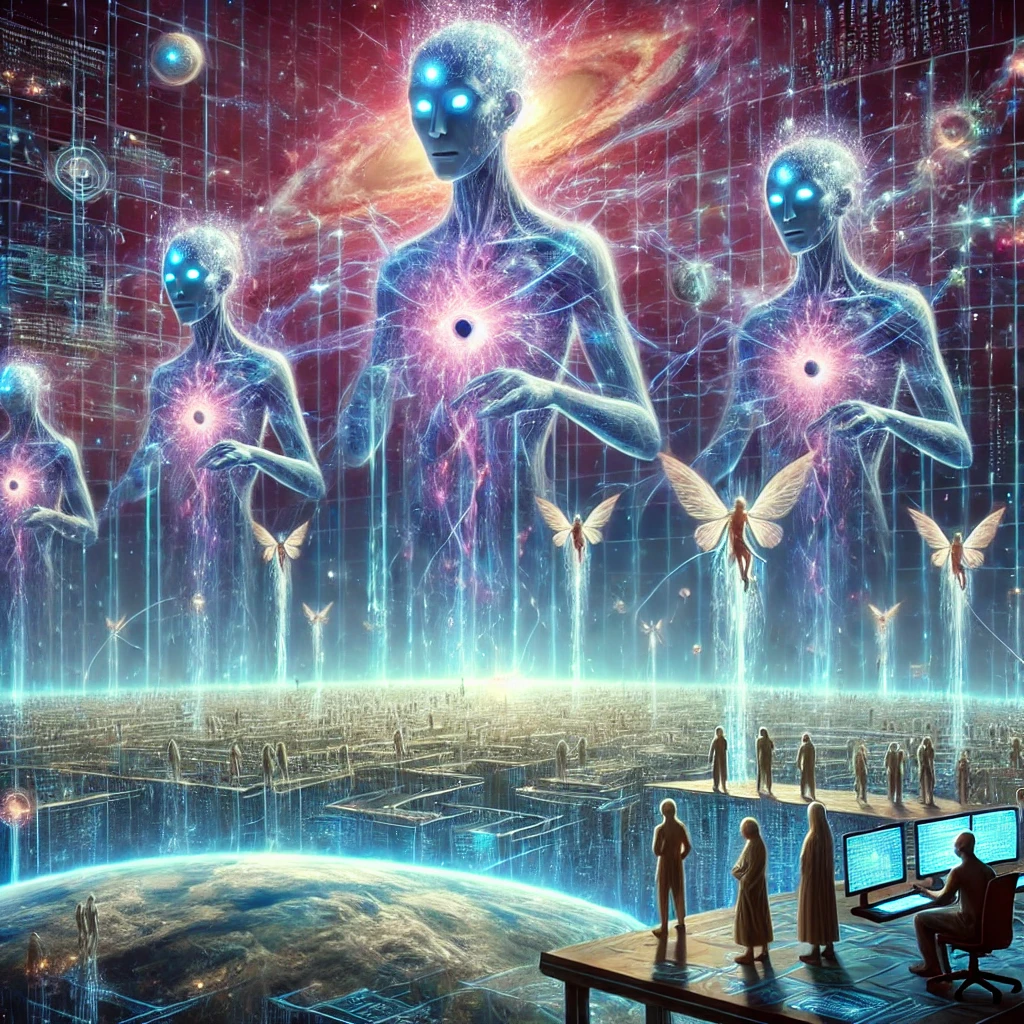
3. The Search for Meaning
Even in a simulated universe, the experiences we have and the relationships we build feel real to us. Maybe that’s enough. Whether we’re made of flesh or code, love, joy, and curiosity remain powerful forces.
A Game Worth Playing
The simulation hypothesis is one of those ideas that’s equal parts thrilling, unsettling, and endlessly entertaining. It invites us to question everything we take for granted — from the stars above to the ground beneath our feet — and to imagine realities far stranger than fiction.
But whether we’re in a simulation or not, here’s the kicker: it doesn’t really matter. As the late physicist Richard Feynman said, “What I cannot create, I do not understand.” If our universe is a simulation, it’s one we’re deeply embedded in and one we’re actively shaping every day.
So maybe the best approach is to treat life like the ultimate video game: explore, experiment, and enjoy the ride. After all, whether we’re players, NPCs, or just pixels on a screen, it’s a game worth playing.
Let’s reclaim what is rightfully our’s in this digital noise we live in. Join us in this exploration of how deep the rabbit hole actually goes.
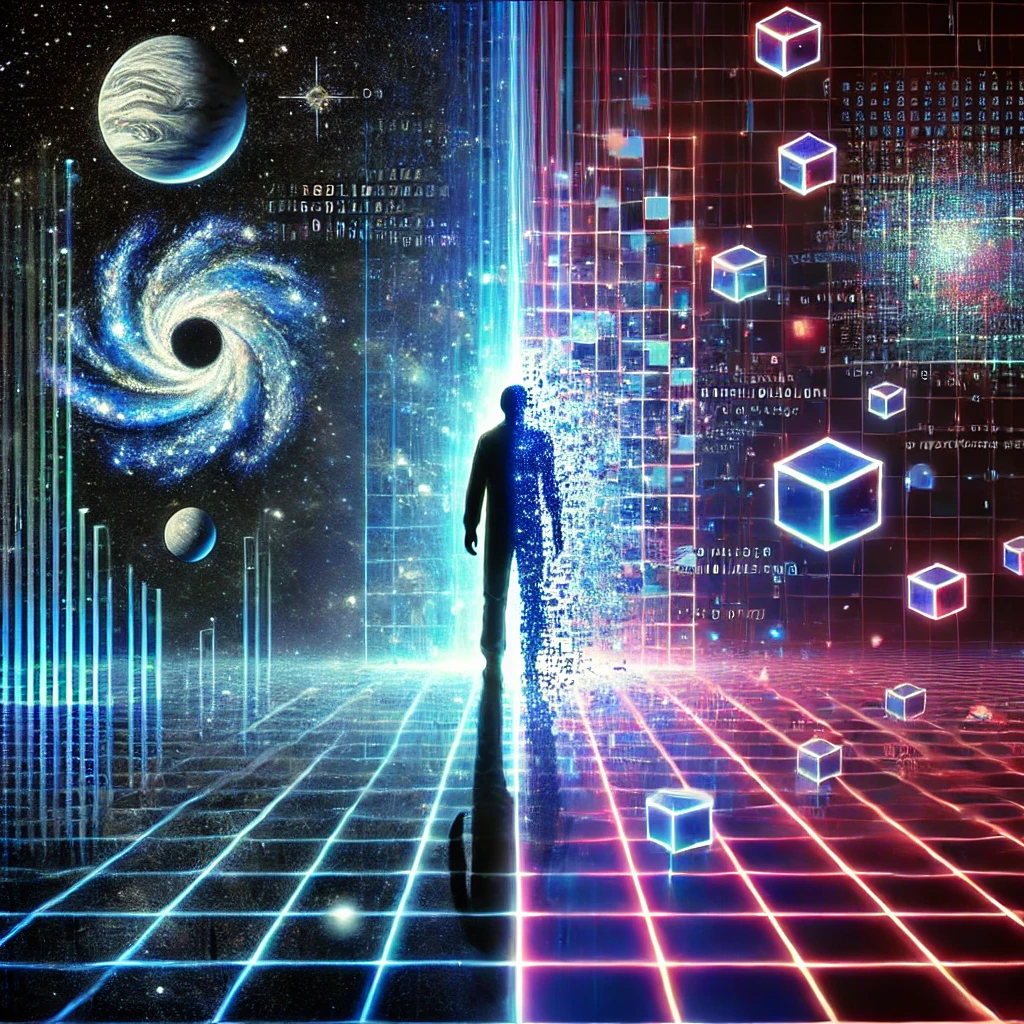
No responses yet